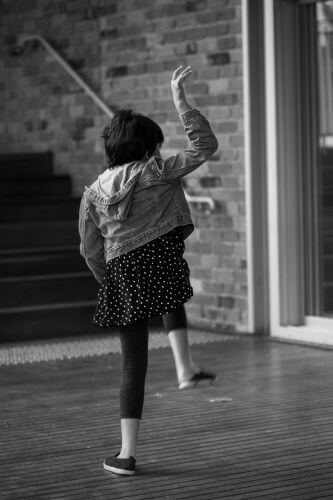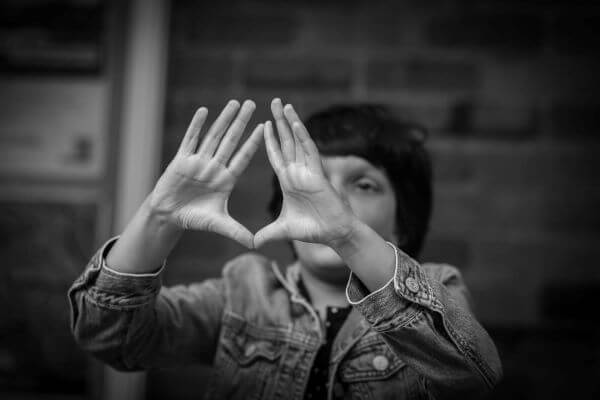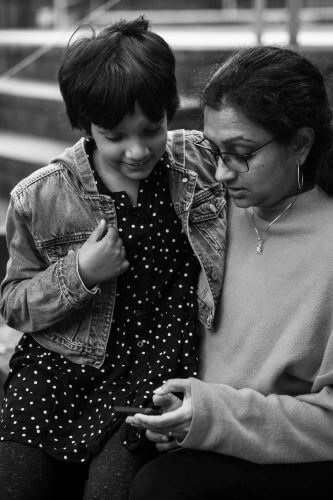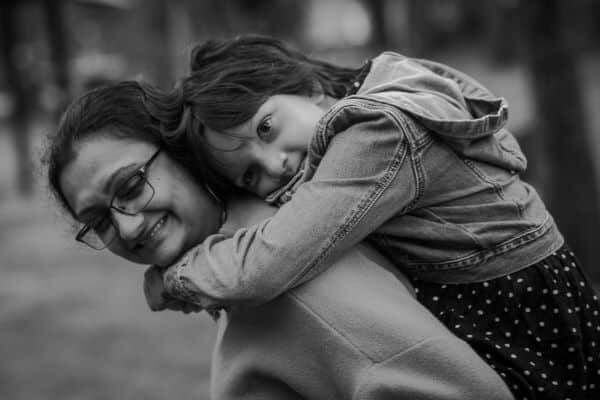Veena Sashikumar was told, five minutes after walking into a paediatrician’s office, that her daughter would never walk or talk, and that she would live her life as a vegetable.
Her daughter, then 1.5 years old, is twelve today, and runs around and talks non-stop.
Sydney-based Veena’s story sheds light on the real journey of parents raising neurodiverse children.
Her own began eight years ago. She vividly recalls the moment she first received her daughter’s autism diagnosis.
“The paediatrician told me we should start thinking of our daughter’s future in a home,” Veena recounts.
As a new parent, this news felt like a dagger through her heart. It took a while for her to recover from the shock and accept the diagnosis.
 The early days were filled with numerous appointments with specialists and therapists. Finding the right therapy involved a series of trials and errors, which were mentally, physically, and emotionally draining.
The early days were filled with numerous appointments with specialists and therapists. Finding the right therapy involved a series of trials and errors, which were mentally, physically, and emotionally draining.
“My social circle became almost non-existent, partly because of my situation and partly because I wanted to be inside my shell,” she reveals.
Veena realised that looking at the big picture, which was unclear and frightening, was overwhelming. “When I changed my perspective and started looking at the small picture, things began to move forward. I decided to build my own big picture, one small picture at a time.”
This shift in perspective helped her find resources that made a small difference each day. Today, her daughter, once immobile and non-verbal, is a bundle of energy, all thanks to that single step in the right direction.
Balancing work with raising a child with autism
Veena faced numerous challenges in understanding what autism meant for her child and family. “Navigating the system was not easy. Understanding where to start and how to go about it, and how to set life goals with so many unknowns, were significant challenges,” she shares.
Balancing work life with the demands of raising a child with autism has been another major challenge for Veena. “I took a 10-year career break. Navigating the systems was really difficult—appointments, follow-ups, schools… everything is a tad bit more difficult and needs more involvement.”
Veena’s daughter went through a brain surgery when she was just over two years old. This meant follow-ups, therapies, and regular scans to ensure the surgery was successful. “By the time she was four or five, she had three surgeries and at least 12 MRIs.”
She emphasizes the importance of a balanced approach. “It is difficult to have a balance every day, but as long as there is an overall balance it works out well.”

Veena Sashikumar shares several key strategies that have helped her navigate this journey.
Reach Out: “It can be a very isolating journey. When you reach out and ask for help, you will find fellow travelers who will help in making your journey better.”
Veena co-founded a WhatsApp group that supports mums with kids who have additional needs. “Although I don’t have all the answers, the 300 other mums in the group do, and we support each other,” she says.
Within the family, share the responsibilities. “Work and maintaining a family is not just the responsibility of the mum or the dad. Both have to be equally involved in the journey, even more in this case. It goes a long way when both parents are helping in the child’s growth and development.”
And of course if at times you need professional help, and there is no harm in doing that. “Seek counseling, or coaching if you think it might benefit you.”
Self-Care: Veena considers self-care a responsibility. “If you are not healthy mentally and physically, who will be there for your child? I take regular breaks, meet friends, go out for trips, get a massage, explore or nurture a hobby, and most importantly, ask for help. This is very important.
Small Picture: The big picture can be overwhelming, especially with many unknowns. “Break things down that will help you take that one step to make one difference in your life and in your child’s life.”
Raising awareness
Creating a supportive and inclusive community for autistic children and their families begins with raising awareness. Veena highlights that “one of the big barriers is lack of awareness. Awareness precedes change. Creating awareness is very important.”
She stresses that everyone, whether neurodiverse or neurotypical, seeks “acceptance, kindness, recognition, and respect.” She emphasises the importance of treating families and children with autism as we would like to be treated ourselves.
Underlining the importance of openness and dialogue you’re your own children when it comes to autism, she advises, “Don’t make it into a subject that needs to be shoved under the carpet. Talk about it with your kids. Get them to understand what it is about and how they should be treating people on the autism spectrum.”
Veena Sashikumar urges parents to consider the likelihood that neurodiversity could impact their own families. “Do you think there is a chance that this is going to reach your backyard? If it does reach your family, what would you want your family to know and how would you want them to behave?”
In 2019, there were 4 million people in Australia registered as disabled, accounting for 18% of the population. This figure includes both neuro and physical disabilities. As Veena points out, “What do you think the number will be in 2024?”
Her message is clear: by fostering understanding and empathy at home, parents can play a crucial role in creating a more inclusive and supportive community for everyone.
Equally, to families living with autism, Veena urges, share with others what’s going on with you. This is how a side-hustle in stand-up evolved for her. She believes that in difficult situations, there are two options: you can cry about it, or you can laugh about it. “I’d like to laugh at my problems and deal with it light-heartedly rather than make it into a mountain that I can’t carry.”
In popular media, neurodiversity is often depicted in extremes—either as genius or as a struggle—leaving a vast middle ground unrepresented. “There needs to be more awareness about what it is.”
Looking ahead, she aims to expand her awareness efforts on a larger scale. With ideas and thoughts in development, she has already been approached by community leaders to explore the best ways to execute them.

Finding joy in small victories
Being a mother to her daughter has profoundly changed Veena’s perspective on life making her a much better person, she says.
“I now seek joy in the smallest things, especially with my child. After that crushing early diagnosis, to see my daughter today as a lively bundle of joy, is a great source of strength. Watching her grow into a teenager, hearing her sassy replies, and seeing her defy expectations is incredibly rewarding. She has helped me prove people wrong, and together we face the marathon of challenges ahead, both determined to defy the odds.”
Ever the person who looks at the silver lining in anything, Veena Sashikumar concludes, “An optimist looks at the glass half full. A pessimist looks at the glass half empty. I look at it and feel grateful that I have a glass; now all I have to do is find water.”
READ ALSO: The Rainbow Brain: Celebrating Autism-ADHD individuals





